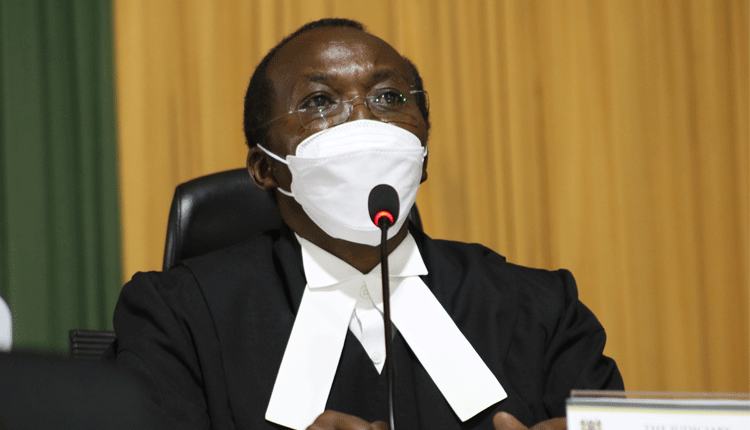President Uhuru not aware of scheme to postpone polls
By Hillary Mageka, August 25, 2021President Uhuru Kenyatta on Monday denied knowledge of a scheme or talks to postpone the 2022 General Election.
In an exclusive interview with senior editors at State House, Nairobi, President Uhuru revealed he has not heard any talks from whichever quarter to call off next year’s elections.
While denying there are plans to postpone the elections, the President wondered how the Court of Appeal expects IEBC to conduct polls and yet judges said it has no quorum.
“I have no comment on postponement of elections, but if indeed what the Appellate Court ruled on BBI is anything to go by, in effect they are telling us that we will not have a General Election in 2022, because IEBC is not well constituted,” Uhuru said.
“I don’t want to comment on that but let’s wait how it unfolds, I am ready to have elections at a prescribed time, as I have said severally, August 8, 2022 that is the schedule I am working on,” the President added.
The Head of State was reacting for the first time after a section of the Building Bridges Initiative (BBI) proponents and MPs believed to have the blessings of the Executive were alleged to be plotting to reschedule next year’s general election.
Calls to delay next year’s elections were last month amplified by Africa Court on People and Human Rights which issued an advisory that countries can decide to postpone elections due to the Covid-19 pandemic.
The court ruled that treaties signed by African Union (AU) member states allow for postponing of elections in the event of a disaster that threatens the well-being of citizens, such as the Covid-19 pandemic, which has caused the deaths of thousands on the continent.
However, the court directed any government that wants to postpone elections must do so using the laws in its country.
This means that if a country’s laws do not provide for postponement, lawmakers must come up with regulations to define and govern the process.
Cotu Secretary General Francis Atwoli, a fierce BBI proponent has been vocal in calling for the postponement of the elections, arguing that “it is out of the reality that the outcome of such elections would have a negative effect on the welfare of Kenyan workers.”
On Friday, while affirming the High Court decision that declared the BBI process illegal, the Appellate Court opined that IEBC was not properly constituted and lacked the required quorum to approve the BBI process to amend the Constitution.
According to the seven-judge bench, IEBC is an important commission that the threshold of commissioners required to transact business cannot be lowered to less than half of the seven members.
“The IEBC Act, which puts the minimum quorum at five commissioners, is still valid law and has not been declared unconstitutional. It is such an important commission that should have all hands on deck to carry out its business,” ruled Justice Francis Tuiyott.
The electoral commission has operated with only three commissioners for almost three years since four commissioners quit.
Six judges – Justice Daniel Musinga, Patrick Kiage, Hannah Okwengu, Gatembu Kairu, Francis Tuiyott, and Roselyn Nambuye upheld the High Court findings that the commission was not properly constituted to verify BBI signatures and forward the draft BBI to County Assemblies for debate.
Following the verdict, several decisions made by the IEBC could now be challenged in court including the Appellate Court’s election of its president and other officials as well as by-elections conducted by the agency.
IEBC official Beatrice Saki Muli presided over the election of Daniel Musinga as the President of the Appellate Court in May.
“Interesting conundrum has been pointed out. Justice Musinga was elected President of the Court of Appeal in an election conducted by IEBC. But he has ruled IEBC has no legal capacity to even verify voters for a popular initiative and said the exercise was unconstitutional,” posed Paul Mwangi, a former joint secretary of the BBI taskforce said.
“Another conundrum, Justice Musinga had disclosed that two Appellate Court judges represented the Judiciary in the BBI Task Force public participation and presented the views of judges. Now he has ruled that BBI did not conduct public participation. So what were those judges involved in?” Mwangi wondered.
Ndaragwa MP Jeremiah Kioni, who chairs the National Assembly Committee on Constitutional Implementation (CIOC) while differing with the court’s decision faulted the judges for contradicting themselves.
“If IEBC had no quorum to verify signatures then it has no capacity to conduct any by-elections in this country, because it goes back to 2018,” said Kioni
He went on: “IEBC has doing what it has been doing on the strength of a judgement given from the same court, that have to say, by the way you don’t have a quorum,” he added.
